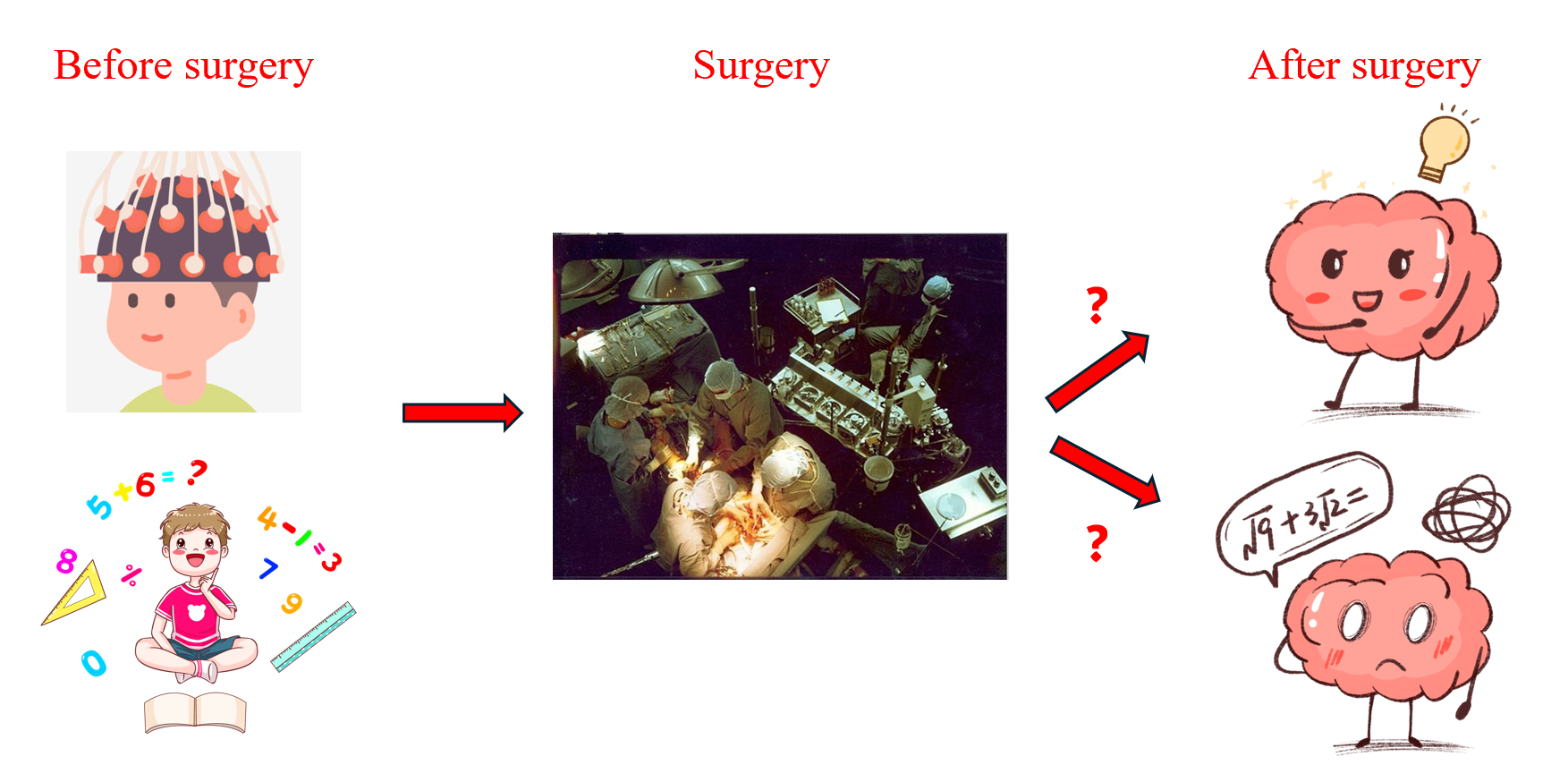心臟體外灌流(cardiac extracorporeal perfusion,CPB)是心臟手術中使用的關鍵手術,過程中由於心臟和肺臟的暫時停頓,患者的血液循環完全依賴於體外機器進行,這可能會對大腦供血和氧氣供應造成一定的影響。
研究顯示,一些患者在手術後會出現短期或長期的認知功能下降,如記憶力減退、注意力不集中以及執行功能障礙等。
本計畫整合神經科學、心理學、生物醫學工程等不同學科來探討CPB手術後造成認知功能變化與差異的原因,對手術後的認知功能變化進行全面的分析。
BAISP Lab則專注於探討腦電波(electroencephalography,EEG)資料,以揭示CPB手術對神經認知的影響機制。
透過比較手術前後的EEG資料,我們希望找出潛在的生物標記,並探討這些標記與認知功能變化之間的關聯性,例如: 計算不同頻帶的腦波活動(如α波、β波、θ波等)在手術前後的變化,以迴歸模型分析這些變化對患者認知功能的影響。
同時,我們將採用深度學習技術來擷取腦電圖訊號的特徵,以預測患者於CPB手術後三個月、六個月甚至一年後的認知功能變化。
通過本計畫之研究成果,我們希望能夠為心臟手術患者提供更好的術後認知功能保護策略,並提升他們的生活品質。本研究不僅將對心臟手術領域具有重要意義,還將為其與腦科學和人工智慧的交叉應用提供寶貴的方法。
Cardiac extracorporeal perfusion (CPB) is a critical procedure used in cardiac surgery, but it often affects patients’ cognitive function. During this surgery, the heart and lungs are temporarily halted, and the patients’ blood circulation relies entirely on external machines. This process can potentially impact brain blood flow and oxygen supply. Studies have shown that some patients experience short-term or long-term cognitive decline post-surgery, such as memory loss, lack of concentration, and executive function disorders.
The purpose of this project is to explore the mechanisms underlying the cognitive changes caused by CPB through various fields, including neuroscience, psychology, and biomedical engineering. The BAISP Lab focuses specifically on the analysis of electroencephalographic (EEG) data to uncover these neurocognitive impacts.
By comparing preoperative and postoperative EEG data, we aim to identify potential biomarkers and explore the relationship between these markers and cognitive changes. For example, we will compute changes in brain activity across different frequency bands, such as alpha, beta, and theta waves, and investigate their predictability for cognitive changes using regression models. Additionally, we will employ deep learning techniques to extract EEG signal features, aiming to develop an automated prediction model capable of accurately forecasting cognitive outcomes after CPB.
Our goal is to develop strategies for better postoperative cognitive protection for cardiac surgery patients, ultimately improving their quality of life. This research holds significant implications for the field of cardiac surgery and offers valuable interdisciplinary applications in brain science and artificial intelligence.
